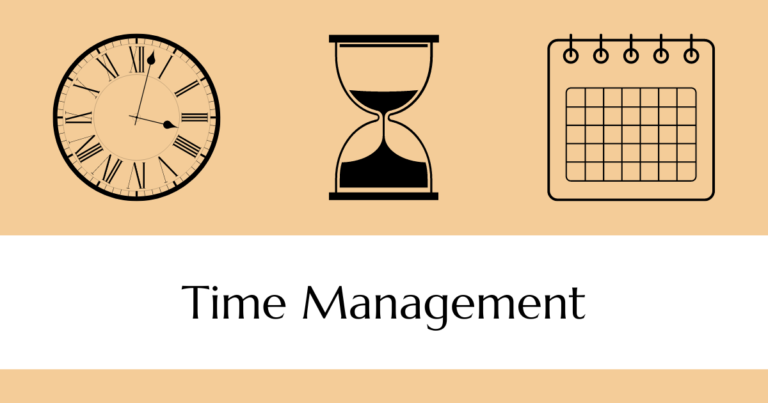Setting Goals vs Building Systems: A Guide to Achieving Your Objectives
Imagine having a clear and compelling aspiration in life. You’re eager to achieve it, but what if I told you that focusing solely on that goal could hinder your chances of success? Sounds counterintuitive, right? Let’s break down the difference between setting goals and building systems.
Table of Contents
What Are Goals?
Goals are specific targets you want to achieve. For example, you might want to lose 20 pounds, get a promotion, or save $10,000. Goals are important because they give you direction and motivate you. Setting goals helps you see what success looks like.
What Are Systems?
Systems, on the other hand, are the processes and habits you follow on a regular basis that gradually lead you toward your ultimate objective. For instance, if your goal is to lose 20 pounds, your system might involve a healthy diet, regular exercise, and a consistent sleep schedule. Building systems focus on the journey rather than the destination.
The Problem with Setting Goals

When you concentrate intensely on a specific goal, it can feel like you’re constantly facing failure. Until you achieve that goal, you’re stuck in a mindset of “not yet there.” This ongoing focus can create feelings of frustration and dissatisfaction, making it easy to overlook the progress you’ve already made.
As a result, many people may feel discouraged and abandon their goals entirely. Instead of fostering motivation, this perspective can hinder your journey. It’s essential to acknowledge your achievements along the way and recognize that progress takes time. By shifting your focus from the end goal to the steps you’re taking, you can cultivate a more positive mindset.
The Benefits of Building Systems
Conversely, individuals who emphasize the process and systems tend to achieve better results over time. By focusing on the steps involved rather than just the end goal, they cultivate consistency and allow for gradual improvement. This approach encourages them to build solid habits that contribute to their overall success.
Systems provide a reliable framework for progress, ensuring that even small efforts lead to meaningful gains. While the advancement may feel slow at times, the cumulative effect of consistent action can lead to significant achievements. Embracing this mindset fosters resilience and a sense of fulfillment, making the journey toward success more rewarding.

Building a System That Works for You
Now that you understand the benefits of systems, let’s explore how to create one that’s tailored to your unique needs and goals. Here’s a general three-step process you can follow:
Choose Your Direction
Identify your goals to gain clarity on what you want to achieve. Whether it’s losing weight, earning a promotion, or launching a business, knowing your direction is essential. This focus helps you create a roadmap to success and motivates you to take the necessary steps toward your desired outcome.
Ask Questions and Find Answers
Once you know what you want, figure out how to get there. Ask yourself questions like, “What steps do I need to take?” “What resources do I need?” and “Who can help me?” Gathering this information helps you create a roadmap.
Experiment, Adjust, and Improve
Take action on your plan and observe what works best for you. Be ready to modify your approach based on your experiences and outcomes. Embracing flexibility is crucial for creating a successful system that adapts to your needs, ensuring you stay on track toward achieving your goals.
Examples of Process-Based Goal Setting:

Let’s illustrate this concept with a few examples:
Example 1: Business Growth:
Imagine a business owner who aspires to double their annual revenue. Instead of dwelling on the daunting target of $200,000, they identify the underlying process: acquiring more clients. By setting a daily goal of two client meetings, they transform the seemingly distant objective into a manageable task.
Example 2: Weight Loss:
Losing 20 kgs in 6 months can feel daunting. But by focusing on the process of exercising for 30 minutes and following a specific nutrition plan each day, you eliminate the psychological barrier of the end goal. Consistent adherence to the process, regardless of weight loss progress, fosters a mindset of accomplishment and sustainability.
Comparing goals and systems, it’s clear that systems are more sustainable. While goals give you direction, systems keep you moving forward. They help you build habits that lead to long-term success.

Steps to Building Your Own System
Identify Your Goal
Figure out what you want to achieve. This helps you understand where you’re going. For example, if you want to write a book, get a promotion at work, or start your own business, the first thing you need to do is identify your goal. Knowing your goal gives you a clear direction to follow and makes it easier to plan the steps you’ll need to take to get there.
Break It Down into Actionable Steps
After setting a goal, divide it into smaller, manageable steps you can take. This approach makes your goal less overwhelming and helps you see progress more clearly. For example, if your goal is to write a book, you might start by writing a chapter outline, and then writing one chapter at a time. Breaking down your goal into these smaller tasks makes it easier to stay on track and measure your progress along the way.
Create a Daily or Weekly Routine
Create a daily routine that includes these smaller steps. Doing them regularly is crucial for success. For example, if you want to get fit, make exercising a part of your daily schedule. Sticking to a consistent routine helps you build good habits and achieve your goals more effectively.
Tips for Maintaining Your System

Stay Flexible
Stay flexible and willing to modify your method when necessary. If a part of your plan isn’t yielding results, be bold enough to revise it. Adaptability is crucial for progress; inflexibility can hinder success. Alter your strategy to navigate challenges, ensuring your system remains effective.
Monitor Progress
Monitor your progress consistently. This practice helps maintain your motivation and allows you to recognize the strides you’ve made. Seeing your advancement can provide encouragement and a sense of accomplishment, keeping you focused on your journey.
Adjust as Necessary
As you acquire knowledge and experience, be willing to refine your system. Embrace changes that improve your approach, as these adjustments can lead to better results and more efficient progress. Staying open to modifications will help you adapt and thrive on your journey toward achieving your goals.
Common Mistakes to Avoid When Building Systems
Overcomplicating the System
Keep your system simple to avoid frustration and burnout. Complexity can make it hard to stay on track, while a straightforward approach is easier to follow. A simple system is more sustainable over time, allowing you to focus on your goals without feeling overwhelmed by unnecessary complications.
Ignoring Small Wins
Acknowledge and celebrate small achievements as you go. These moments keep you motivated and help you see your progress. Recognizing little victories can boost your morale and encourage you to keep moving forward.
Focusing Too Much on the End Goal
Setting a goal is important, but try not to stress about it. Instead, concentrate on your actions and the progress you’re making. Enjoy the journey and celebrate the small improvements you achieve along the way. This mindset helps you stay motivated and appreciate the effort you’re putting in.

The Role of Habits in Systems
Building Good Habits
Good habits are essential for creating an effective plan. They keep you focused and ensure steady progress. By practicing these habits, you can continue to advance without setbacks. Establishing a routine helps you maintain momentum and makes it easier to overcome obstacles along your journey toward your goals.
Breaking Bad Habits
Recognize the habits that hold back your progress and work to break them. Introduce positive habits that align with your goals and contribute to your success. This shift in behavior can significantly improve your journey towards achieving your objectives.
Using Technology to Support Your System
Apps and Tools
Numerous applications and tools exist to aid in monitoring your progress and maintaining your organization. It’s essential to explore and identify the ones that align most effectively with your needs and preferences.
Tracking Progress
Regularly monitoring your progress is crucial for understanding your achievements and identifying areas for improvement. Keeping track of your advancements allows you to recognize the milestones you’ve reached along your journey. By evaluating your progress, you can gain insights into what is working well and where adjustments might be needed. This reflection helps you stay motivated and focused on your goals while ensuring that you’re continually refining your approach. Whether through journaling, using apps, or setting regular check-ins, tracking your progress is an essential practice that not only highlights your successes but also guides you in making necessary enhancements along the way.
Remember, creating a system is an ongoing process. As you gain experience and learn more, you’ll continue to refine and improve your system. The key is to start small, be consistent, and stay flexible. With time and effort, you’ll build a system that will help you achieve your goals and live a more fulfilling life.
What is the difference between setting goals and building systems?
Setting goals focuses on the specific outcomes you want to achieve, while building systems involves creating a structured process to guide your actions consistently towards those outcomes.
Why are systems often more effective than goals?
Systems promote ongoing progress and consistency, allowing you to focus on daily actions rather than fixating on a distant goal. This can lead to sustained improvement and a sense of accomplishment along the way.
How can I implement a system for achieving my goals?
Start by identifying the daily habits and actions that will contribute to your goal. Create a structured plan to incorporate these habits into your routine and monitor your progress regularly.
Can I use both goals and systems together?
Yes, using both can be beneficial. Goals provide direction and motivation, while systems offer the framework to make consistent progress toward those goals.
What should I do if I find my system isn’t working?
Be open to adjusting your system as needed. Analyze what isn’t working, gather feedback, and make the necessary changes to enhance your approach and ensure it aligns with your objectives.








Awesome post! You actually mentioned my goal in your article! I would really like to lose a bit of weight. I’ve gained a lot of weight and rapidly too. It’s been a challenge trying to build good habits in order to lose the weight I gained. I can be pretty stubborn, at least that’s what my family tells me. Building a system that will help me reach my goal won’t be easy, but in order to reach my goal I will definitely try. Thankyou for this really good article!
Great guide. I am considering using a tracking app.